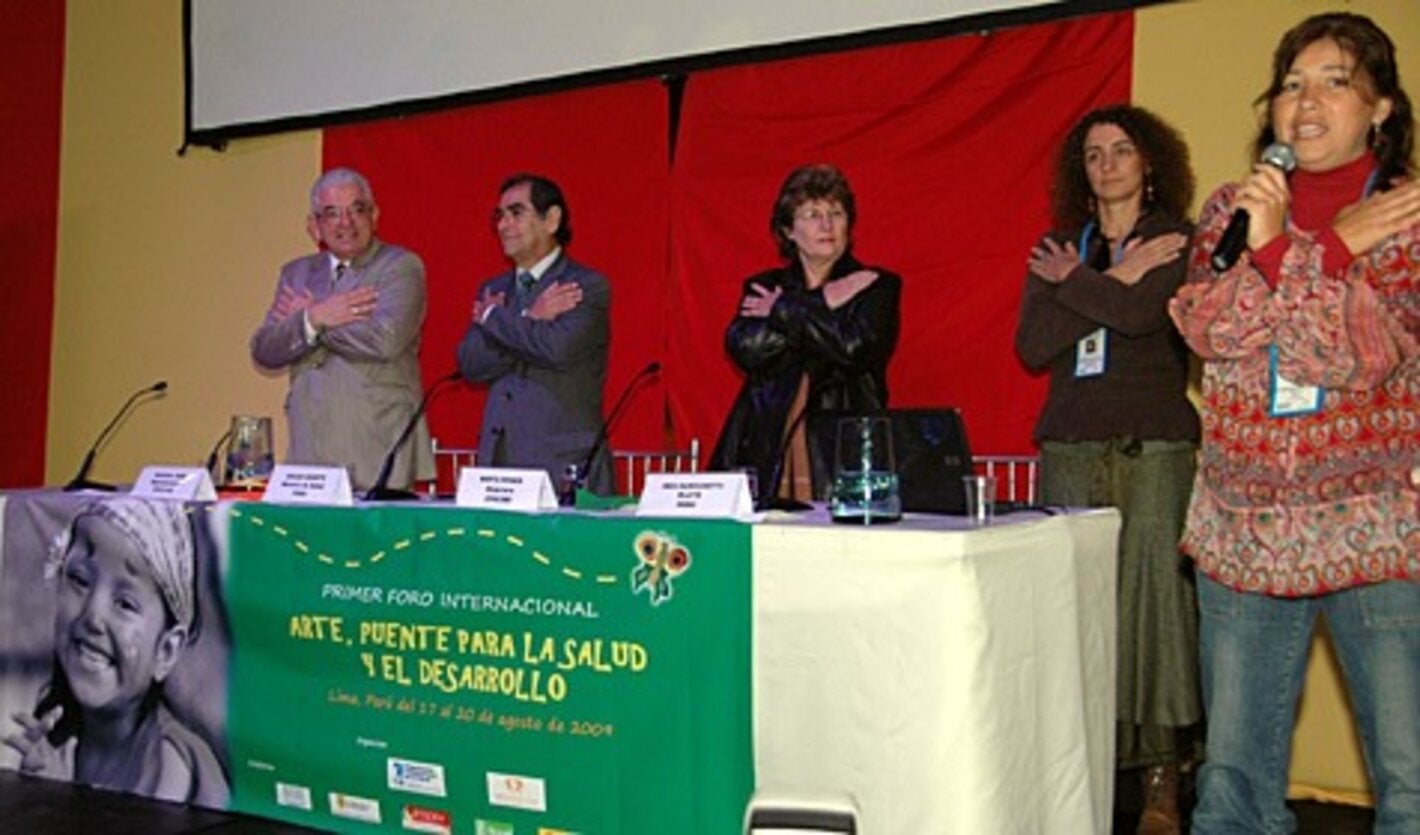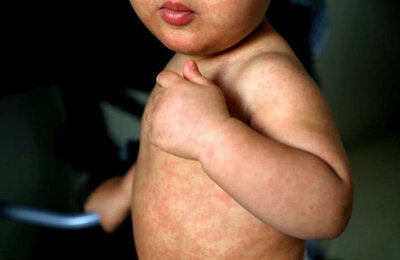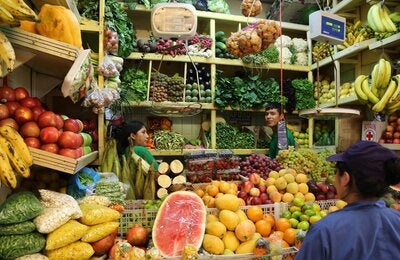
Art as a way to improve health
Lima, Peru, August 18, 2009 (PAHO) - The 1st International Forum on "Art, Bridge to Health and Development" opened in the city of Lima, Peru. The forum seeks to establish a bridge between the fields of health, art, culture and development, and to impact in a more creative and effective way the quality of life and health of the population in the countries of the Americas.
Among the authorities present at the opening of the event were the director of the Pan American Health Organization, Dr. Mirta Roses Periago, Peru's Minister of Health Dr. Oscar Ugarte, representatives from U.N. agencies, universities and nongovernmental organizations.
In her opening remarks, Dr. Roses pointed out that "there is a great deal of relationship between health and art. Humor, painting, music, dance, puppets, theater and street theater, murals, among other representations, have always been used to communicate health information. For that reason we say that art is a bridge for health and the road to improvement, cohesion, inclusion, and the possibility of getting closer to others and to our most profound reality."
Later on, Dr. Manuel Peña, PAHO/WHO Representative in Peru, mentioned "the value of artistic creation as a primary or complementary resource in behavioral therapies and its importance in the promotion of values among young people and marginalized groups."
More than 60 social organizations of art and culture from Argentina, Brazil, Bolivia, Chile, Uruguay, Honduras, Costa Rica, El Salvador, Guatemala, and Peru are participating in this Forum. During the four days of the event, recognized artists, members of art and culture organizations, health workers, education and social development, civil servants and members of the academic and scientific community will present different work approaches based on the recognition of artistic and recreational practices as ways to generate individual and community health.
PAHO signed a Framework Agreement with the Latin American Network of the Arts for Social Change (RLATS), represented by Mrs. Inés Sanguinetti, with a view of to using art in the improvement of health, living conditions and the development of the population in the Region of the Americas, prioritizing the most vulnerable and excluded groups. The agreement also seeks to strengthen through art social participation and organization, so that the population may fully exercise and enjoy its rights, as well as to promote the articulation and development of joint initiatives among organizations in the fields of art, culture and health to strengthen the efforts to promote development with equity in the Region of the Americas.
Since 2007 the PAHO/WHO Representation in Peru has been exploring innovative lines of work that use the arts as a tool for public health. First in Belén, under PAHO's Faces, Voices, and Places project, and later in the immediate response and recovery projects following the earthquake in Pisco.
The Festival of Belén, which closed on the 16th of August was once again a huge success in Iquitos. The 15,000 residents of the community greeted the arrival of a brigade of experts bringing them art, fun, color, music, and information about public and environmental health, and the promotion of food safety in the home and in the local markets.
The Festival of Belén had the presence of the Minister of Health of Perú, Dr. Oscar Ugarte Ubilluz; PAHO Director Dr. Mirta Roses Periago; Dr. Patch Adams, founder of the Gesundheit! Institute; Dr. Manuel Peña, PAHO/WHO Representative in Peru; and Wendy Ramos, founder and Director of the Bolaroja Association. It happened in Pueblo Libre, an impoverished area in the Belén district of Iquitos, a town in the Amazon region of Peru.
The Faces, Voices and Places Initiative works with the poorest municipalities and the most vulnerable social groups in the Americas. It is an initiative that reflects the values of equity and Pan-Americanism. Faces, Voices and Places emphasizes advocacy on behalf of the most vulnerable and fosters citizenship-building with an approach based on shared rights and responsibilities. This is accomplished through an intersectoral, interagency effort that pools action and resolve to ensure the fulfillment of the United Nation's Millennium Development Goals, especially in places where national averages have obscured stalled progress and reversals. Faces, Voices and Places focuses on health determinants and has adopted the renewed primary health care concept and health promotion as its basic strategies.



